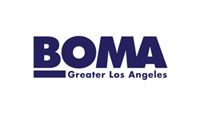
Leasing your first commercial property is a pivotal decision for business growth. This step requires understanding your operational needs and the financial and legal implications of commercial leasing. A hasty decision can lead to unnecessary expenses, inefficiencies, or legal complications. This guide provides crucial information to help you make an informed and confident choice.
Know Your Business Needs Before Signing Anything
Clarify your business’s specific requirements to avoid leasing a property that doesn’t align with your goals. Decide whether your business needs office space, a storefront, or industrial facilities. The size, layout, and utilities should match your day-to-day operations. Estimating future growth ensures the space won’t feel cramped too soon.
For example, a bakery might prioritize a kitchen with proper ventilation and ample workspace. Conversely, a tech company may focus on open workstations and reliable internet connectivity. Avoid leasing based on appearance alone. Functionality and adaptability should be your main concerns.
Location Matters More Than You Think
Your property’s location has a direct impact on your business performance. Proximity to customers, competitors, and suppliers can define success. For retail businesses, visibility, and foot traffic are crucial. As an illustration, a clothing store near a busy shopping district will attract more walk-ins than one in a remote area.
Consider logistics for employees and customers. Are parking spaces or public transport options nearby? For warehouse operations, proximity to highways may outweigh visibility. Evaluate the surrounding area for safety, reputation, and amenities to ensure the location supports your goals.
Why Hiring Moving Experts Is Essential
Relocating to your first commercial property is an exciting but complex task. Whether it’s an office, a retail space, or a warehouse, the logistics of moving everything—furniture, equipment, and supplies—require careful attention. Hiring moving experts for this process can save you time and reduce stress. Professionals have the knowledge and experience to handle all aspects of the move, ensuring everything is properly packed, transported, and set up in the new location. They are equipped with the right tools and techniques to manage fragile or bulky items, avoiding potential damage during transit.
There are many reasons to hire moving experts for your commercial move. First, they can efficiently plan the entire process, from packing to unpacking, minimizing the risk of disruptions to your business operations. Experts are also familiar with local regulations and can help navigate any permits or requirements necessary for the move.
Understanding Lease Terms: Beyond the Basics
Lease terms are often dense and confusing, but understanding them is vital. Familiarize yourself with the three main types: gross leases, net leases, and modified gross leases. Gross leases include rent and most expenses, while net leases may require additional taxes, maintenance, or insurance payments. With this in mind, calculate total costs to avoid surprises.
Examine clauses for rent escalation, early termination, and renewal. For example, a landlord may increase rent annually, which could strain your budget. Pay attention to exclusivity clauses, which protect your business from direct competition in the same building or plaza.
Negotiate Like a Pro: Securing the Best Deal for Your First Commercial Property
Negotiating your lease terms can save substantial money and improve flexibility. Start by researching local rental rates to identify fair pricing. Discuss rent reductions, rent-free periods, or maintenance contributions. Another key point is determining which party pays for repairs and upgrades.
When negotiating, emphasize your value as a tenant. For example, if your business attracts foot traffic, landlords may offer incentives to secure your lease. Always request changes to any unclear or unfavorable terms before signing.
Zoning Regulations and Legal Compliance
Ensure your business activities comply with local zoning laws. A property zoned for office use may restrict retail operations. Verify the property’s zoning permits your business type before proceeding. Non-compliance can lead to fines or eviction.
Review building codes and health and safety regulations. For instance, restaurants often require fire suppression systems and adequate ventilation. In short, addressing these issues upfront prevents legal headaches later.
Hidden Costs That Could Break Your Budget
Hidden costs are common in commercial leases. These might include utilities, different insurance premiums, or shared property expenses. Property taxes and maintenance for communal areas are frequently overlooked. Besides, confirm whether the landlord or tenant covers repair costs.
Create a detailed budget that includes all potential costs. Factor in renovations or upgrades you may need to make. For instance, installing shelves, lighting, or special equipment can significantly increase expenses.
Seek Professional Guidance Before Signing
Navigating a commercial lease without professional advice can be risky. Hiring a real estate agent or attorney ensures you understand the lease’s terms and conditions. They can spot hidden fees or overly restrictive clauses. In contrast, going without expert input may lead to unfavorable deals.
A commercial agent can also provide insights into market trends and help you negotiate better terms. Meanwhile, a lawyer ensures compliance with local laws and protects your interests.
Plan for Future Growth or Exit Strategies
A flexible lease allows your business to adapt to changing circumstances. Discuss options for expansion, such as adding square footage or leasing adjacent spaces. Conversely, plan for exits by negotiating sublease rights or early termination clauses.
Businesses in fast-growing industries like technology may need flexibility to expand quickly. Hence, choosing a property with adaptable terms ensures long-term viability. Having a clear exit strategy prevents financial strain if you outgrow space or the business model changes.
Key Questions to Ask Before Signing
Before finalizing your lease, ask key questions to ensure you’re making the right choice:
- What is the total monthly cost, including hidden fees?
- Are there any restrictions on signage or alterations to the property?
- Who is responsible for routine maintenance and repairs?
- Is the landlord willing to offer rent-free months for setup or renovation?
- Does the lease include an option to renew, and under what terms?
These questions help clarify potential risks and ensure you’re prepared for any situation.
Taking the Right Steps Towards Success
Leasing your first commercial property is an exciting milestone. You can secure a space that supports your growth by evaluating your needs, understanding lease terms, and planning for the future. With this in mind, approach the process thoughtfully to avoid common pitfalls. A well-chosen property will strengthen your business and provide a solid foundation for success.


